
What could possibly be better than a BMW 1200GS? Two – which meant my evening off-road ride would now come with a commentary, as I would not be riding solo.
I must say I barely got to know the old 1200GS and, I never got to take it off road, so when BMW announced that they had just perfected the perfect bike, it didn’t make that much difference to me, even though the entire motorcycle industry was buzzing about it. In production for nine-years, BMW set out to improve their well established adventure favourite without changing the model basics.


As I marveled at the pair of Magma Red bikes awaiting us, I wondered if Neil Peart already had one. RUSH is going on tour again this summer, and drummer Peart, an avid GS rider, and self-proclaimed lover of red, is about due to write another motorcycle adventure book, from which material is derived from riding his own 1200GS off the beaten path between tour stops all over the world.
Granted I wasn’t on tour, and my ride would not cover the miles of one that Peart undertakes, but my ride was definitely aimed to go off the beaten path and as such, I was grateful to have experienced company.

Dave Groleau, owner of Bentley Motorrad, is an experienced GS rider and recently returned from a BMW corporate training event on the new 1200GS that was held in Morocco and offered up some of the most diverse riding conditions. We may not live in Morocco but our valley offers up some pretty decent riding and my excursion into the wild blue yonder would lead a path up Glenrosa Road to Crystal Mountain before heading into the woods on logging roads.
As riders, it is burned into our brains that unless you are riding a dirt bike, the all mighty gravel is your enemy and should be avoided at all costs. Even with enduro style rides, gravel is a cautionary area. When you accelerate in gravel, the rear wheel over-spins and most bikes will fish tail the back end.
The new air/water cooled, opposed v-twin (boxer) 1170 cc engine has gone green meaning BMW made changes to address future requirements of noise and exhaust emissions by changing the cooling system. Continuing with the air/liquid cooling, coolant oil has been replaced by a glycol-water mixture. BMW says, “this ensures a high level of heat absorption capacity of the cooling liquid for more efficient heat dissipation.”
Upon arriving at the gravel on the 1200GS, a slight alteration to the traction control would be all that was needed to maintain a consistent ride. Of the five available riding modes – Rain, Road, Dynamic, Enduro and Enduro Pro – enduro would be the chosen method to continue. Each mode can be freely selected through the on-board computer and are connected to automatic stability control with a special enduro configuration.
With this riding mode selected, the BMW 1200GS not only provides a consistent and solid ride but also accelerates up a gravel hill without losing stability and goes directly in a straight line with minimal excess tire spin. No fishtailing.
Groleau demonstrated this feature so I could see the bike in action and then gain the confidence to try it for myself. After a cautionary 15 km at relatively low speed, the other side of 30 km went much quicker. As Groleau left the road for what appeared to be a dirt bike trail, I thought I was really in for the test. This was the suspension test. The new 1200GS incorporates a new semi-active suspension – BMW Motorrad Dynamic Electronic Suspension Adjustment – keeping the rider stable by ‘monitoring the vertical movement of the front and rear wheel control as well as other parameters by means of a spring travel sensor in each position, and adapts the damping automatically to the situation’ depending on conditions.
On the other side of the brush emerged Lambly Lake and a lakeside clearing that was well marked with the remnants of moose. As the sun dipped below the mountains, our time spent idle would be limited, not to mention the awakening of mosquitoes making it difficult to have a conversation without dining on flying hors de oeuvres.
The ride back was much quicker paced for me but still not near the expert standards of Groleau as he made a vapour dust trail much farther ahead. This is where I was thankful for the new aerodynamic optimized windshield that sent the dust up and over.
The higher speed on the gravel road actually made the ride much smoother. The new chassis on the 2013 is a tubular all-steel bridge frame with a bolt-on rear frame. This allows the main rider portion of the bike to maintain stability.
Once on the pavement, traction control setting was returned to ‘road’ and ABS was back on. As dusk set in, the main LED headlight lit our way as the sky darkened. Standing at the first traffic light, I was thankful that my seat height had been adjusted to a lower position than the standard. As we continued through the bends and twists of some side roads flipping the bike from side to side like opposing corners in the MotoGP, it was hard to believe that just a short time before we had been standing around 6500 ft in baron moose territory fending off mosquitoes.
A quick hose down of the bikes and they looked brand new. For a versatile bike designed to suit a multitude of personalities and riding conditions, you can’t go wrong with the 2013 BMW 1200GS. It literally is 5 bikes in one and offers all the bells and whistles so go test one but bring your wallet and be prepared to drop a small c hunk of change.
hunk of change.
For the gear heads, here are BMW’s tech specs:
| Engine | |
| Type |
Air/oil-cooled flat twin (‘Boxer’) 4-stroke engine, two camshafts and four radially aligned valves per cylinder, central balancer shaft |
| Bore x stroke |
101 mm x 73 mm |
| Capacity |
1,170 cc |
| Rated output |
110 hp (81 kW) at 7,750 rpm |
| Max. torque |
88 ft-lb (120 Nm) at 6,000 rpm |
| Compression ratio |
12.0 : 1 |
| Mixture control / engine management |
Electronic intake pipe injection / BMS-K+ digital engine management with overrun fuel cut-off, twin spark ignition |
| Emission control |
Closed-loop 3-way catalytic converter, emission standard EU-3 |
| Performance / fuel consumption | |
| Maximum speed |
over 120 mph (200 km/h) |
| Fuel consumption per 100 km at constant 90 km/h |
City: 43.4 mpg (4.3 l Euro) |
| Fuel consumption per 100 km at constant 120 km/h |
Highway: 57.4 mpg (5.5 l Euro) |
| Fuel type |
Unleaded super and premium, octane number 91-93 |
| Electrical system | |
| Alternator |
three-phase alternator 720 W |
| Battery |
12 V / 14 Ah, maintenance-free |
| Power transmission | |
| Clutch |
Single dry plate clutch, hydraulically operated |
| Gearbox |
Constant mesh 6-speed gearbox with helical gear teeth |
| Drive |
Shaft drive |
| Chassis / brakes | |
| Frame |
Two-section frame consisting of front and rear sections, load- bearing engine-gearbox unit |
| Front wheel location / suspension |
BMW Motorrad Telelever; stanchion diameter 41 mm, central spring strut, spring preload with 5-position mechanical adjustment |
| Rear wheel location / suspension |
Cast aluminium single-sided swing arm with BMW Motorrad Paralever; WAD strut (travel-related damping), spring pre-load hydraulically adjustable (continuously variable) at handwheel, rebound damping adjustable |
| Suspension travel front / rear |
7.5/7.9 inches (190/200 mm) |
| Wheelbase |
59.3 inches (1,507 mm) |
| Castor |
101 mm |
| Steering head angle |
64.3° |
| Wheels |
Cast aluminum wheels |
| Rim, front |
2.50 x 19″ |
| Rim, rear |
4.00 x 17″ |
| Tyres, front |
110/80 R 19 |
| Tyres, rear |
150/70 R 17 |
| Brake, front |
Dual disc brake, floating brake discs, diameter 305 mm, 4-piston fixed calipers |
| Brake, rear |
Single disc brake, diameter 265 mm, double-piston floating caliper |
| ABS |
Optional extra: BMW Motorrad Integral ABS (part-integral), can be switched off |
| Dimensions / weights | |
| Length |
2,210 mm |
| Width (incl. mirrors) |
915 mm |
| Height (excl. mirrors) |
1,450 mm |
| Seat height, unladen weight |
33.5/34.2 inches (850 / 870 mm), low seat 32.3″ (820 mm), lowered suspension 31″ (790 mm) |
| Inner leg curve, unladen weight |
1,890 / 1,940 mm (low seat 1,820 mm, lowered suspension 1,760 mm) |
| Unladen weight, road ready, fully fuelled |
504 lbs (229 kg) |
| Dry weight |
447 lbs (203 kg) |
| Permitted total weight |
970 lbs (440 kg) |
| Payload (with standard equipment) |
465 lbs (211 kg) |
| Usable tank volume |
5.3 gallons (20 l) |
| Reserve |
approx 1 gallon (4.0 l) |

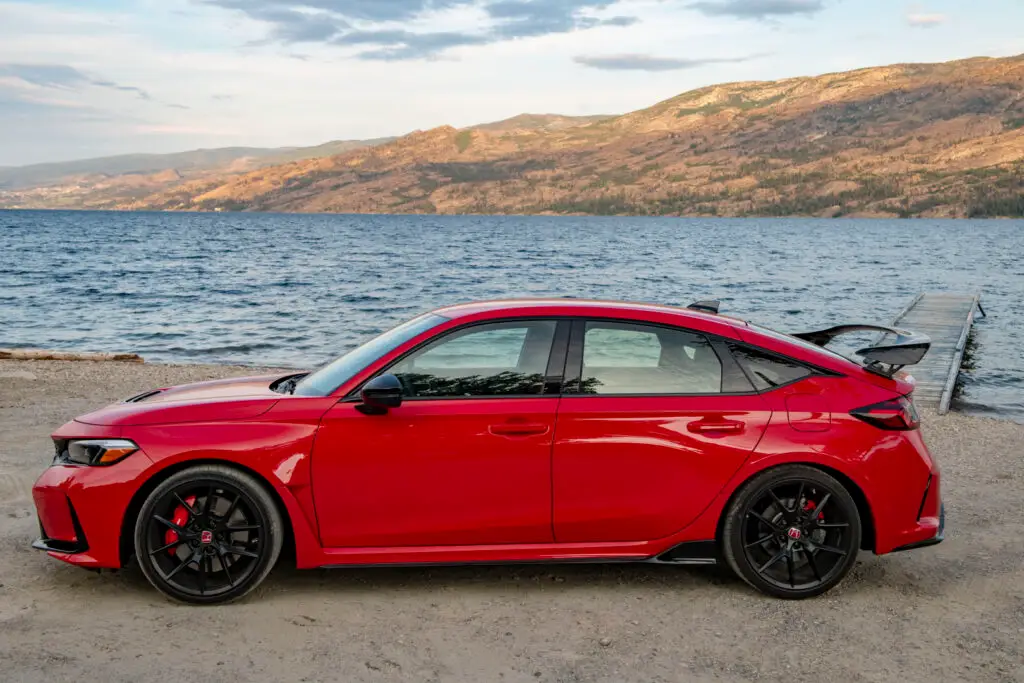
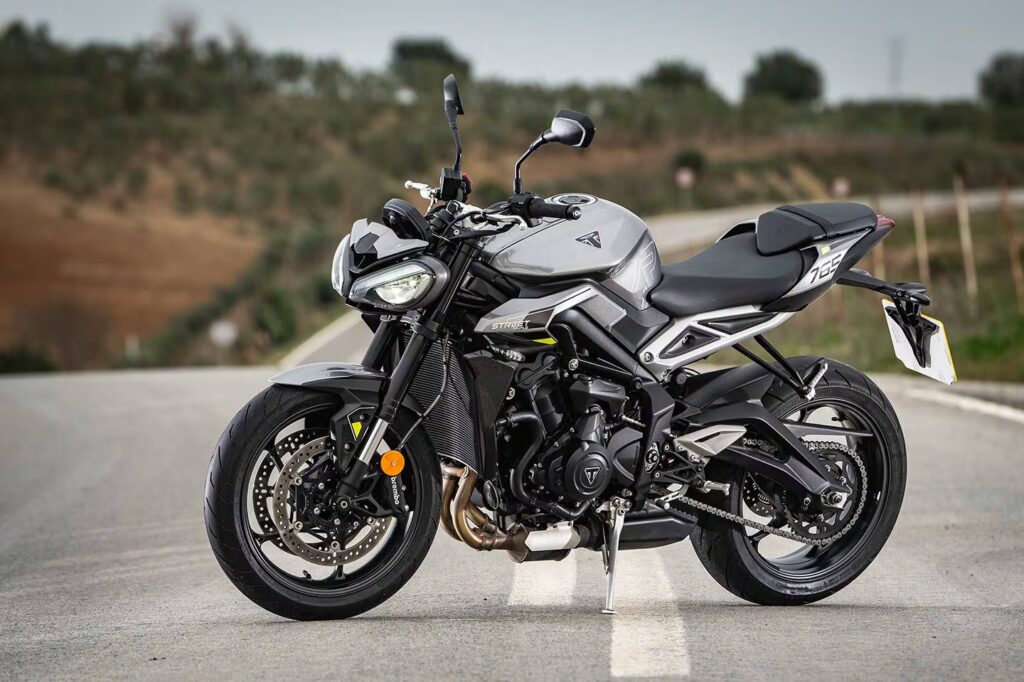
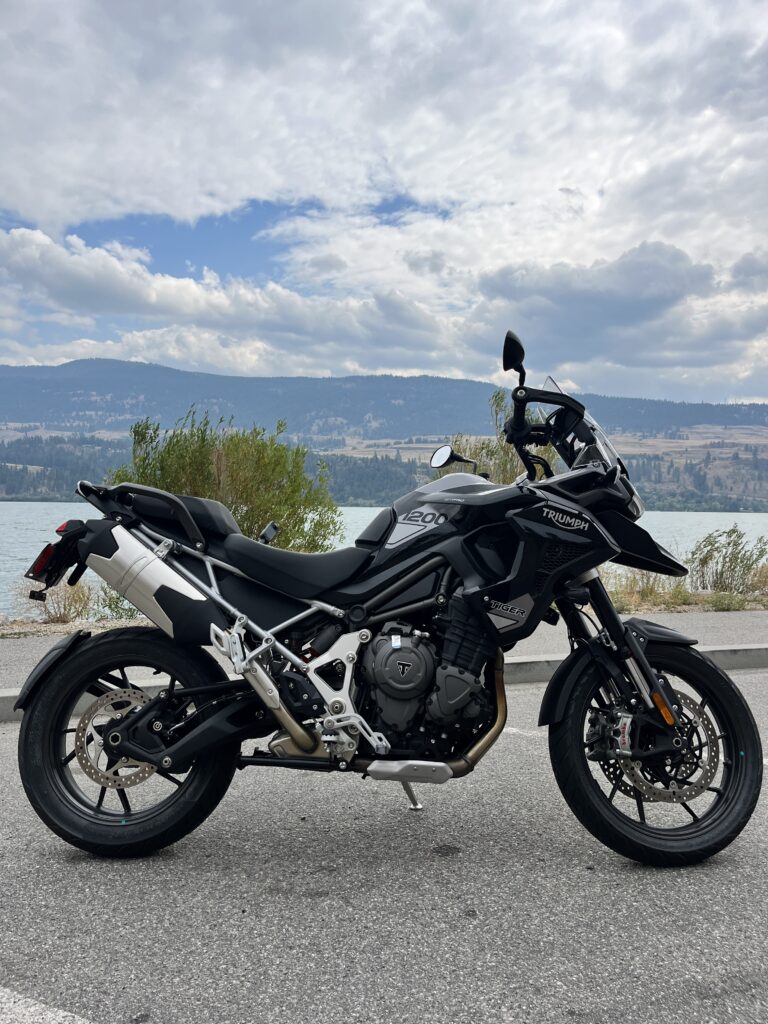






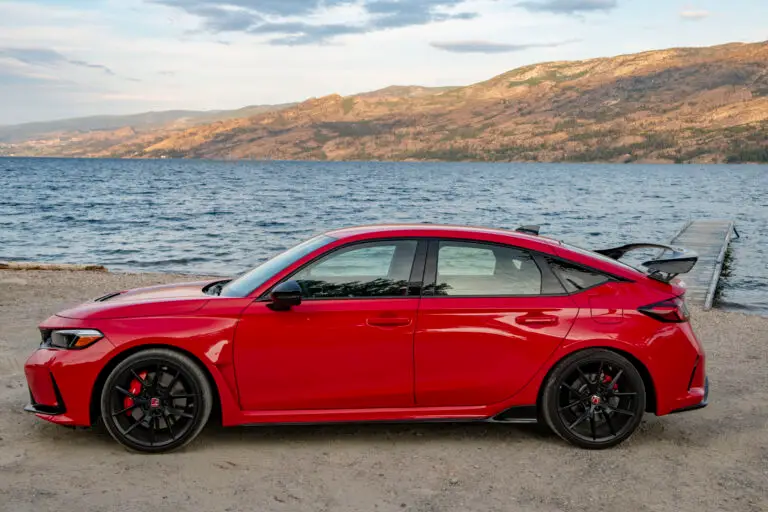
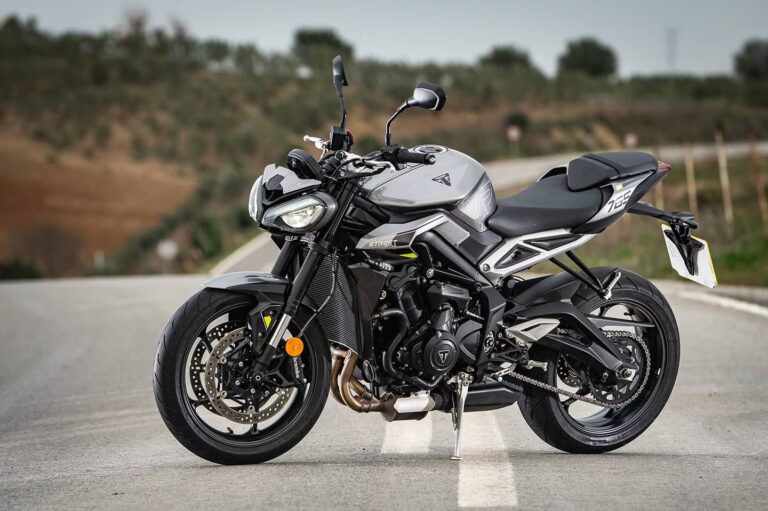
One Response